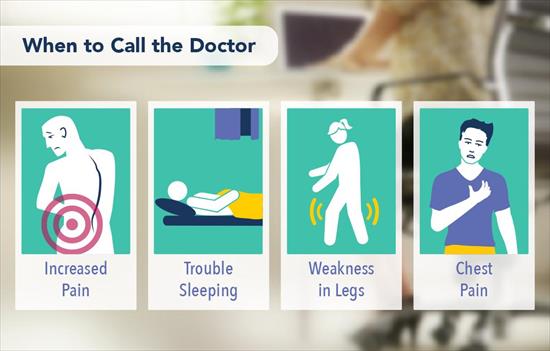
Back pain is one of the most common reasons people visit healthcare providers worldwide. While most back pain resolves on its own with rest and home care, certain symptoms and situations require medical attention. Knowing when to see a doctor for your back pain can help you get timely treatment and prevent serious complications. This article will guide you through key signs, symptoms, and conditions that indicate it’s time to seek professional care for your back pain.

Back pain can result from a variety of causes including muscle strain, poor posture, herniated discs, arthritis, or spinal stenosis. Most cases are benign and improve within a few weeks with conservative care. However, some back pain signals a more serious underlying problem that requires a doctor’s evaluation.
Acute back pain lasts less than six weeks and often improves with rest, ice, or over-the-counter pain relievers. Chronic back pain persists for 12 weeks or longer and may require more comprehensive treatment. Regardless of duration, certain symptoms call for immediate medical attention.
If your back pain is severe, worsens over time, or doesn’t improve with home remedies after a few days, it’s important to consult a healthcare professional. Intense pain that prevents you from performing daily activities is a red flag.
Any back pain following a fall, accident, or injury should be evaluated by a doctor to rule out fractures, spinal cord injury, or other serious damage.
Seek immediate medical care if your back pain is accompanied by:
Back pain with systemic symptoms such as fever, chills, night sweats, or unintentional weight loss may indicate infection or cancer and requires prompt medical evaluation.
If your back pain continues for more than 6-12 weeks despite home treatment, physical therapy, or medications, it’s important to get a professional assessment to identify the cause and adjust treatment.
Your healthcare provider will ask detailed questions about your pain, medical history, and lifestyle. A thorough physical exam will assess your range of motion, muscle strength, reflexes, and neurological function.
Depending on your symptoms, the doctor may order imaging tests such as X-rays, MRI, or CT scans to view your spine and surrounding structures. Blood tests may also be used to rule out infection or inflammatory conditions.
In some cases, your doctor may refer you to a specialist such as an orthopedist, neurologist, or pain management expert for further evaluation and treatment.
Doctors may prescribe stronger pain relievers, muscle relaxants, or anti-inflammatory drugs to manage your symptoms effectively.
A tailored physical therapy program can help strengthen your back muscles, improve flexibility, and correct posture to reduce pain and prevent future episodes.
For certain conditions, treatments such as corticosteroid injections, nerve blocks, or minimally invasive procedures may be recommended to relieve inflammation and pain.
Surgery is typically a last resort but may be necessary in cases of severe nerve compression, spinal instability, or structural damage.
Call emergency services or go to the nearest emergency room if you experience:
A short period of rest can help, but prolonged inactivity can worsen back pain. Gradually resume gentle activities and avoid heavy lifting or twisting.
Use ice packs to reduce inflammation during the first 48 hours, then switch to heat therapy to relax muscles.
Practice ergonomic sitting and standing positions to reduce strain on your back.
NSAIDs like ibuprofen can help reduce pain and inflammation but should be used as directed.
Back pain is common, but not all pain requires a doctor’s visit. However, knowing when to see a doctor for your back pain is crucial to avoid complications and get the appropriate care. Severe, persistent, or neurological symptoms always warrant professional evaluation. Early diagnosis and treatment can improve outcomes and help you get back to your normal activities faster.
If you’re ever unsure whether your back pain needs medical attention, it’s better to err on the side of caution and consult a healthcare provider. Taking timely action can make all the difference in managing your back h